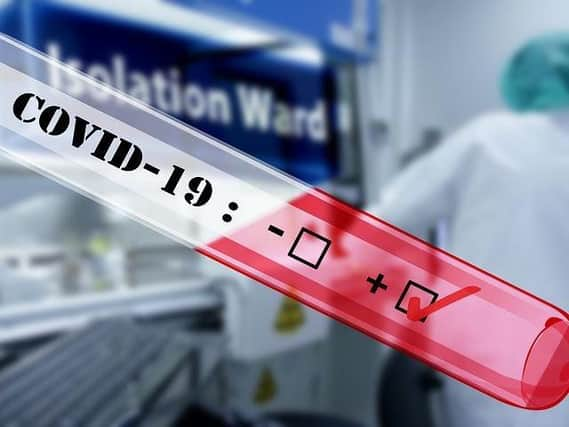CORONAVIRUS: Boston community testing centre shuts down as plans for move to new venue scrapped


It was originally intended to open a new centre at the former MINT supermarket at the Boston Shopping Centre on Horncastle Road.
But that decision has now been reversed as numbers using the centre are very low, say health bosses, and more people are using home testing kits.
Advertisement
Hide AdAdvertisement
Hide AdDerek Ward director of public health for Lincolnshire, said: "There is no longer the need for this testing facility and numbers using it are very low so we have taken this decision to close the Boston site.
"People are tending to use home testing kits rather than the Boston testing site and we'd encourage picking up test kits from your nearest collection point, which is likely to be your local pharmacy. Some of these will be closer than you think, linked to supermarkets and stores.
"The test kits allow people to carry out their own lateral flow tests and are simple to carry out with a result in 30 minutes.
“They still remain an important part of testing, helping to identify those people who have the virus and don't know it, prevent the spread to others and suppress the spread of variants.
Advertisement
Hide AdAdvertisement
Hide Ad“Two test kits can be picked up from your closest pharmacy or other collection point and each contains seven tests. This is enough for seven weeks of twice-weekly tests.”
The decision is part of a wider reduction of lateral flow testing sites across the county as people are urged to do more testing at home.
Mr Ward said rapid lateral flow testing was working really well across the country, but there had been a shift in government stance on the need for “fixed” lateral flow sites.
“At the moment, we’re only using between 5-10% of our capacity,” he said, adding that nine out of 10 sites could be taken out and still have “more than enough.”
Advertisement
Hide AdAdvertisement
Hide AdHe said that since the sites were set up before Christmas there had been more than enough capacity to start with.
However, he explained that in recent weeks activity had “dropped massively”.
“I’ve got no concerns about it, it’s a good news story to be honest, people don’t need them because they can go down other routes.
“There’s a cost involved with keeping the site, so we want to make sure that we’re spending the money wisely, so we’ll reduce the offer.”
Advertisement
Hide AdAdvertisement
Hide AdSince the sites began to carry out LFTs, there have been about 38,000 tests carried out, with just under 400 positive asymptomatic COVID-19 cases found, but more than 37,000 negative tests.
Elsewhere, in schools for instance, more than 650,000 lateral flow tests have been carried out by pupils, parents and teachers, since the beginning of the year, with around 1,000 positive cases found.
Professor Ward said he was confident that people were able to carry out the tests themselves, with a current void rate of just 0.4%.
He added that younger people, including those up to university age, had “done a remarkable job of sticking by the rules and protecting older people”.
Advertisement
Hide AdAdvertisement
Hide AdHe said one or two testing sites would still be kept, including potentially a mobile site, which he hoped might be used for Lincoln City’s play-off matches next Wednesday and Saturday.
However, he continued to urge the more than 3,000 fans with tickets to take a test within 24 hours before attending the match against Sunderland.